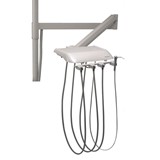The National Aged Care Alliance, which is met in Adelaide recently says that while the current system has undergone some change in the past decade to increase services and quality, it is still inadequate.
For older Australians to be able to live in dignity and independence, major reforms are now required to place older people at the centre of the system.
This will require strong leadership from the Federal government to redesign the aged care system that depends on Federal funding and is highly government regulated.
Government action will have the broad support and involvement of advocates and representatives of older people, aged care providers unions and professional groups.
The National Aged Care Alliance is a coalition of 28 leading consumer, provider and professional associations, peak medical and nursing organisations and unions involved in the provision of care and support for older people.
Alliance Spokesman, Ian Yates, the National Chief Executive of COTA (Councils on the Ageing), said older Australians were entitled to a system that guaranteed them the same freedoms and choices as all other Australians.
"The current system has evolved over the years into a model where older people requiring services are effectively placed into pre-determined menus," he said.
"This often does not reflect the preferences, aspirations or personal circumstances of the person receiving the care.
"We need to move to a system where individuals can have access in their own homes to the support or care they need and the right to make decisions for themselves in conjunction with chosen family and friends where appropriate.
"This will require funding for care and support to be linked to each recipient rather than the service providers and separated from accommodation funding."
Yates said that under this model, care assessment would be immediately available to older people when they suffered physical or mental challenges to determine the appropriate level of funding required to restore their participation in the community.
This funding could then be used to obtain support and care through approved providers or through their own networks and arrangements.
This support would vary from person to person according to their personal aptitudes, circumstances, aspirations and other personal circumstances.
It would also link into the broader health system and include easily accessible primary health care services, transitional care after acute health episodes as well as restorative and rehabilitation services.
"The Alliance believes that users should contribute to the costs of support and care services and these costs should be nationally consistent, transparent, equitable and affordable," Yates said.
"But no-one should be denied access to support and care because of financial incapacity.
"There also needs to be formal acknowledgement and improved support for families, friends and community carers and importantly, acknowledgement that family and informal carers should have the right to cease carer roles for short periods or permanently."
Yates said older Australians deserved a care and support system that ensured them the same freedoms and choices as all other Australians.
- Suppliers
- New to MedicalSearch? Book a Demo
- Advertise with us
- Login
- Email Marketing
- Buyers
- Get Quotes
- Articles & Ideas
- Login
- Subscribe to newsletter
- My Details
- Get Quotes
- Accident & Emergency Care
- Aged Care & Disability
- Anaesthesia & Respiratory Care
- Beauty & Wellness
- Cardiology & Cardiac Surgery
- Commercial Cleaning & Laundry Supplies
- Dental Care & Oral Surgery
- Diagnostic Instruments & Medical Imaging
- Disinfection & Sterilisation
- ENT & Audiology
- Gynaecology & Obstetrics
- Homecare & Consumer Medical
- Hospital Equipment & Supplies
- Intensive Care Unit
- Laboratory & Pathology
- Medical Apparel
- Medical Devices & Products
- Medical Fridges & Freezers
- Medical Storage & Filing
- Medical Waste Management
- Optometry & Ophthalmology
- Orthopaedics & Podiatry
- Paediatrics & Neonatology
- Patient Monitoring & Management
- Physiotherapy & Rehabilitation
- PPE & Infection Control
- Single Use Medical Consumables
- Surgical Tools & Supplies
- Treatment Beds, Tables & Couches
- Veterinary Equipment
- Wheelchairs & Mobility Aids
- Get Quotes
- Accident & Emergency Care
- Aged Care & Disability
- Anaesthesia & Respiratory Care
- Beauty & Wellness
- Cardiology & Cardiac Surgery
- Commercial Cleaning & Laundry Supplies
- Dental Care & Oral Surgery
- Diagnostic Instruments & Medical Imaging
- Disinfection & Sterilisation
- ENT & Audiology
- Gynaecology & Obstetrics
- Homecare & Consumer Medical
- Hospital Equipment & Supplies
- Intensive Care Unit
- Laboratory & Pathology
- Medical Apparel
- Medical Devices & Products
- Medical Fridges & Freezers
- Medical Storage & Filing
- Medical Waste Management
- Optometry & Ophthalmology
- Orthopaedics & Podiatry
- Paediatrics & Neonatology
- Patient Monitoring & Management
- Physiotherapy & Rehabilitation
- PPE & Infection Control
- Single Use Medical Consumables
- Surgical Tools & Supplies
- Treatment Beds, Tables & Couches
- Veterinary Equipment
- Wheelchairs & Mobility Aids
Trusted by 740,000 Australian medical buyers
Buyers
- Discover products & solutions
- Login
- Subscribe To Newsletter
- Browse All Products
- Read Articles
Suppliers
Advertise
- Promote your products & solutions
- New to MedicalSearch? Book a Demo
- Login / Forgot Password
- Advertise Your Products
- Success Stories
- Email Marketing
- Suppliers
- Advertise with us
- Login
- Email Marketing
- Buyers
- Get Quotes
- Articles & Ideas
- Login
- Subscribe to newsletter
- My Details
Get Quotes
- Accident & Emergency Care
- Aged Care & Disability
- Anaesthesia & Respiratory Care
- Beauty & Wellness
- Cardiology & Cardiac Surgery
- Commercial Cleaning & Laundry Supplies
- Dental Care & Oral Surgery
- Diagnostic Instruments & Medical Imaging
- Disinfection & Sterilisation
- ENT & Audiology
- Gynaecology & Obstetrics
- Homecare & Consumer Medical
- Hospital Equipment & Supplies
- Intensive Care Unit
- Laboratory & Pathology
- Medical Apparel
- Medical Devices & Products
- Medical Fridges & Freezers
- Medical Storage & Filing
- Medical Waste Management
- Optometry & Ophthalmology
- Orthopaedics & Podiatry
- Paediatrics & Neonatology
- Patient Monitoring & Management
- Physiotherapy & Rehabilitation
- PPE & Infection Control
- Single Use Medical Consumables
- Surgical Tools & Supplies
- Treatment Beds, Tables & Couches
- Veterinary Equipment
- Wheelchairs & Mobility Aids
Get Quotes
- Accident & Emergency Care
- Aged Care & Disability
- Anaesthesia & Respiratory Care
- Beauty & Wellness
- Cardiology & Cardiac Surgery
- Commercial Cleaning & Laundry Supplies
- Dental Care & Oral Surgery
- Diagnostic Instruments & Medical Imaging
- Disinfection & Sterilisation
- ENT & Audiology
- Gynaecology & Obstetrics
- Homecare & Consumer Medical
- Hospital Equipment & Supplies
- Intensive Care Unit
- Laboratory & Pathology
- Medical Apparel
- Medical Devices & Products
- Medical Fridges & Freezers
- Medical Storage & Filing
- Medical Waste Management
- Optometry & Ophthalmology
- Orthopaedics & Podiatry
- Paediatrics & Neonatology
- Patient Monitoring & Management
- Physiotherapy & Rehabilitation
- PPE & Infection Control
- Single Use Medical Consumables
- Surgical Tools & Supplies
- Treatment Beds, Tables & Couches
- Veterinary Equipment
- Wheelchairs & Mobility Aids
Trusted by 740,000 Australian medical buyers








-160x160-state_article-rel-cat.png)






-160x160-state_article-rel-cat.png)




